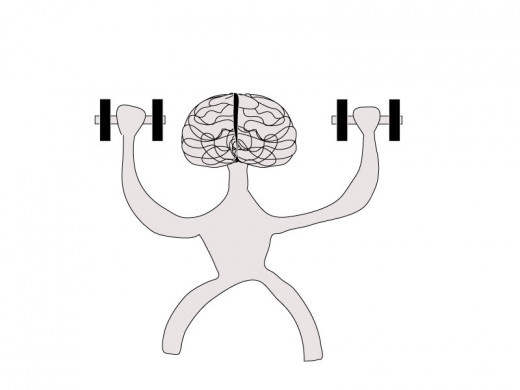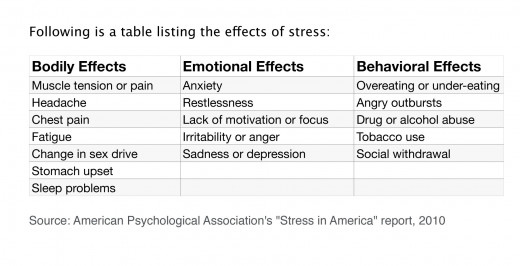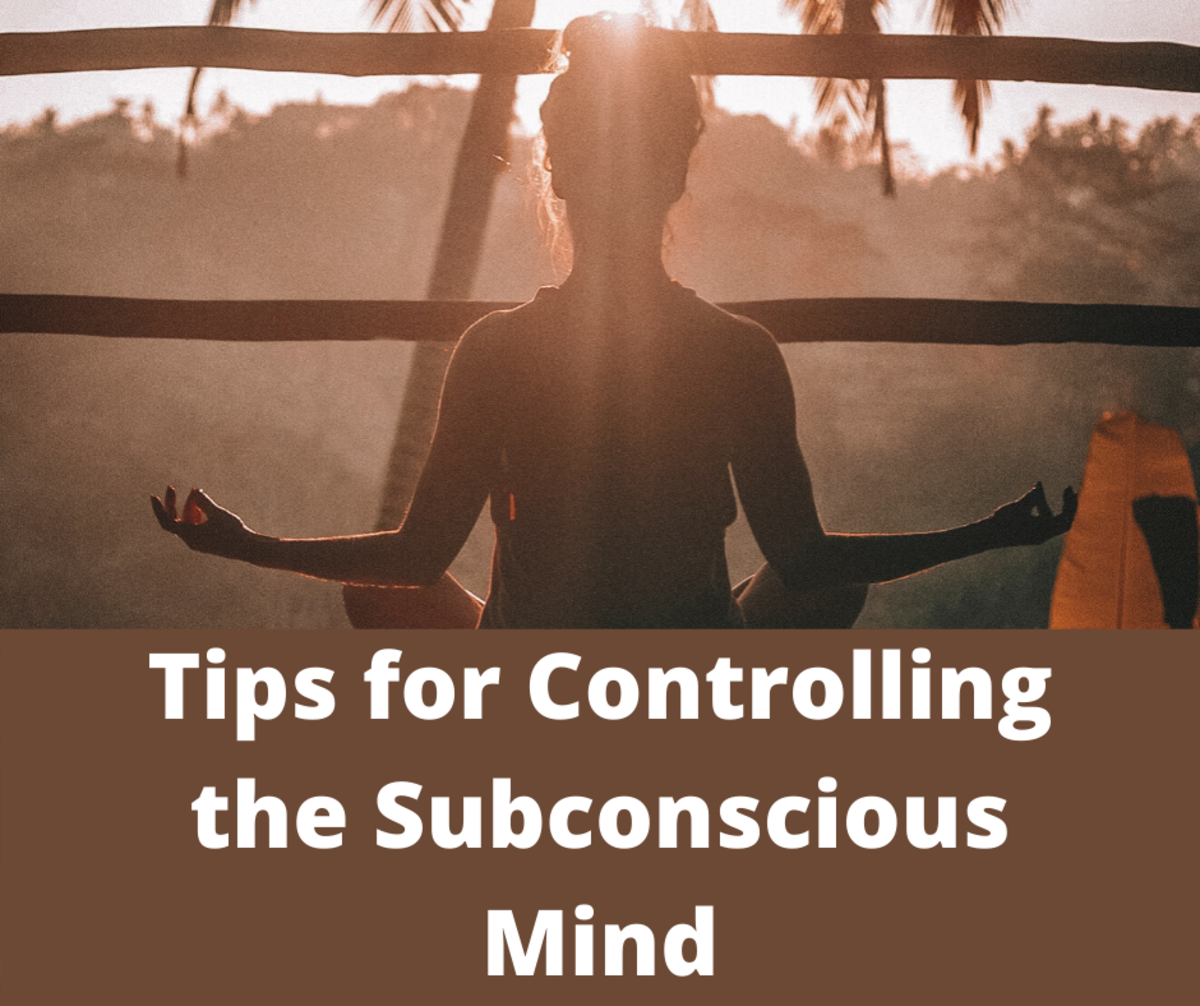How to Train Your Brain for Less Stress
Training for Greater Control of your Mind
An aerobic workout five days a week can expand your heart so that it can pump more blood faster to feed muscles hungry for oxygen and fuel. Similarly, lung performance may also be enhanced by exercise that makes you breathe hard. Eating the right foods, including a healthy amount of non-soluble fiber can make your digestive system more efficient.
What about your brain?

The Busy Brain
Your brain does a lot of things. Some of them are automatic and some are manual. Your brain automatically makes sure your heart keeps beating and your lungs keep breathing. To an extent you can control your breathing and influence your heartbeat, but if you try to stop breathing your brain will automatically try to intervene.
There is a dichotomy between mental software and firmware and the power of conscious thought over unconscious reactions. The brain has many fail safes wired in to prevent you from hurting yourself, yet we know we can circumvent all of these natural safeguards with relative ease. Similarly, the brain can bring us harmful stress, yet the power of conscious thought can do much to mitigate these effects as well.
Survival Instinct
Your brain generates thoughts on several levels. On the most basic level, it thinks about survival, analyzing data from the senses to detect danger and prepare the body to react – commonly known as the ‘fight or flight’ mechanism. Ironically, this mechanism that automatically helps us survive is also the source of much of our stress.


Training Your Mind to Deal with Stress
Stress can also result in heart disease, arterial deterioration and a broad range of mental illnesses, to name a few of the long term effects. So you can see it is something to avoid.
Our brains are at work 24/7 figuring out things to watch out for and identifying possibilities to be afraid of. We are always imagining future threats or rehashing the implications of perceived past failures. Both the past and the future seduce our attention away from the present. Of course, since the past cannot be changed and the future cannot be predicted, worrying about either is a complete waste of time.
This is how internally-generated stress happens: Your fight-or-flight mechanism is designed to respond to emergencies of all kinds by signaling the release of adrenalin to give you extra strength and speed, tightening your muscles in preparation for whatever actions might be necessary and bringing all your senses to an alert state. When there is a real threat, this is handy. When there is an imagined threat this tremendous expenditure of energy simply results in wear and tear on your vital systems.
A good measure of stress can be avoided by training your mind not to get hooked on negative fantasies of the future or harsh critiques of the past. I first discovered this long, long, long ago when I was in my early twenties. I used to beat myself up a lot back then, but then I figured out it wasn’t fun or helpful so I did something about it.
I realized I had a bad self image and did not like myself. To remedy this situation I stood in front of the mirror for a few minutes every day and told myself how beautiful and wonderful I am. After a while, I stopped thinking bad things about myself and I started to realize that when people treated me badly or harshly it was usually much more about them than it was about me. I realized that people have their own problems and I am not usually one of them. I had trained myself to think differently.
I used to have a terrible time falling asleep at night because when I went to bed, I lay there cataloging all my faults and shortcomings. Then I realized, hey, this doesn’t feel good! So now when I go to bed I think about things and experiences that make me happy, or something neutral, like the sound of my breath. Now I rarely have any problem falling asleep at night.
The effectiveness of training the mind has been documented for decades in clinical tests by the Benson Henry Institute for Mind Body Medicine. Herbert Benson, cofounder of the Institute, strongly endorses the use of meditation to change destructive thought habits. Meditation has helped me learn to identify and handle harmful thoughts as they occur.
In meditation, a person takes control of their brain and concentrates on one simple thing, like their breath or a point on the floor in front of them, or the corner of a picture frame. Thoughts still come in – thoughts always come in – but when they do, the meditating person acknowledges the thought and returns to their focus. In doing so, they separate themselves from the thoughts that are naturally generated by their brain. It’s like the thoughts have taken a step down in priority, from urgent matter to ‘wait your turn.’
With only a few months of practice, I found that my thoughts less frequently caused me to go on some fantasy safari into the future or mental retreat into the past. Instead I found myself conscious of the thought coming in, and I had gained the ability to decide whether to pay attention to the thought or dismiss it. I don’t always have to let them lead me down the garden path. That gives me more time to spend on now, when life is actually happening.
Meditation is a workout that expands the muscle that helps you be in command of your thoughts. It is one of the ways you can train yourself to have a better, less stressful life.









